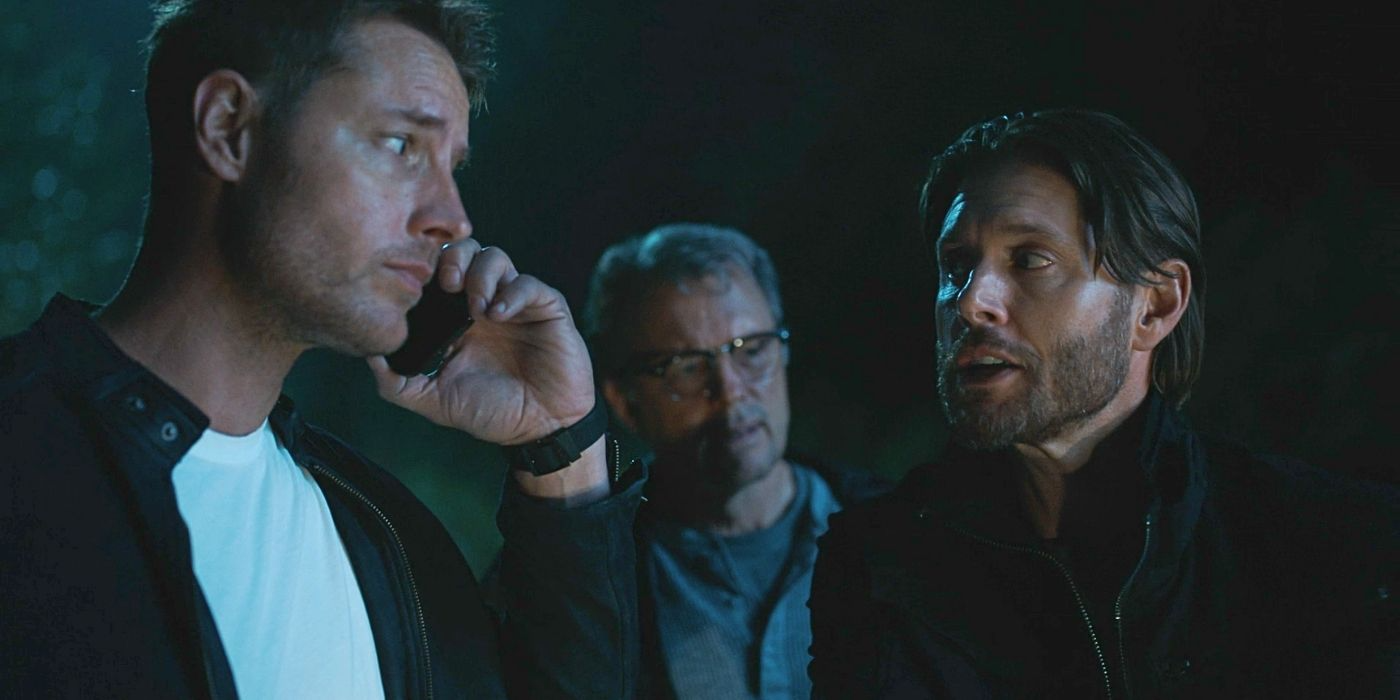
A Shift from Procedural to Psychological Warfare
Since its debut, Tracker has earned its success through tightly crafted mysteries and emotionally resonant character arcs. Colter Shaw’s episodic adventures—solving disappearances and rewarding justice—have satisfied fans who crave a modern Western wrapped in procedural suspense. But with Season 3, the series is raising the stakes.
Enter Monarch, a new villain whose shadow will fall across the entire season. Unlike the criminals Colter usually confronts—abductors, traffickers, cult leaders—Monarch is not bound to a single case. He’s a puppet master, manipulating events from behind the scenes. He doesn’t just break the law; he reshapes systems, corrupts truth, and challenges everything Colter believes in.
According to showrunner Elwood Reid, Monarch is more than an antagonist. “He’s a threat to the very foundation of Colter’s identity. And he’s the first enemy who truly understands how Colter thinks.”
A Phantom in the Network
Early episodes of Season 3 introduce Monarch through indirect means—encrypted messages, falsified police records, and manipulated case leads that deliberately misdirect Colter. Viewers will learn about Monarch the way Colter does: through fragments, whispers, and fear.
The name “Monarch” surfaces during Colter’s investigation into a series of botched bounty postings. Victims he’s been hired to find were already dead before the reward was even posted. Someone is using the reward system as bait, setting Colter up to discover corpses instead of rescues. The goal? Unknown. The pattern? Chilling.
In Episode 3, a hacker named Jace reveals to Bobby (Colter’s tech-savvy ally) that multiple bounty platforms have been infiltrated by the same anonymous user. That user’s code signature? A butterfly symbol. Monarch.
The Philosophy of Control

What makes Monarch terrifying is not just what he does—but why he does it. Rather than operating from greed or vengeance, Monarch believes in control as salvation. He sees modern society as chaotic and believes that only through manipulation can justice prevail.
In a rare recorded message intercepted by Reenie, Monarch says:
“People don’t want truth. They want direction. I give them that. I make the world predictable.”
He operates more like an architect than a criminal—designing outcomes, removing unpredictability, deciding who lives and who disappears. This ideological conflict puts him in direct opposition to Colter, who thrives in ambiguity, believes in individual freedom, and follows intuition over order.
A Mirror to Colter Shaw
What elevates Monarch beyond the typical villain trope is his eerie similarity to Colter. Both are investigators, both work outside formal systems, and both are driven by an obsession with justice. But where Colter listens to his moral compass, Monarch follows cold logic.
In Episode 6, a pivotal conversation between Colter and a former Monarch associate frames them as mirror images. “He’s what you could’ve been,” the man tells Colter, “if you’d given up on people.”
Monarch understands Colter’s past. In one of the most unsettling moments of the season, he taunts Colter with details from his childhood—things only someone intimately connected to the Shaw family could know. This sparks speculation: is Monarch somehow linked to Colter’s father, Ashton? Or worse—could he be someone Colter already knows?
Who Is Playing Monarch?
CBS has kept the casting of Monarch tightly under wraps. The character’s face won’t be revealed until Episode 7, but insiders suggest that the role has gone to a “veteran prestige TV actor” known for morally gray characters. There are rumors of a shocking casting twist—possibly someone who has already appeared in the series in another guise.
This secrecy is part of the mystique. Viewers will be piecing together the identity of Monarch alongside Colter, in what the writers describe as a “season-long detective story inside the show.”
Systemic Threats and Real-World Parallels
Beyond character drama, Monarch represents a shift in the show’s thematic ambitions. Rather than focusing solely on personal crimes, Tracker is beginning to interrogate institutional corruption, predictive policing, and the dangers of surveillance culture.
Monarch funds private bounty operations that act outside government oversight. He exploits data mining to target vulnerable individuals and manipulates media to frame his version of the truth. In one episode, Reenie finds that a series of missing persons were all whistleblowers—systematically removed by Monarch’s network.
The show is using Monarch not just as a dramatic device, but as a commentary on how easily power can hide behind technology. He’s not just a villain for Colter Shaw—he’s a villain for our time.
Colter’s Greatest Test Yet
Colter has faced danger before. But Monarch is different. He’s invisible, untouchable, and always two steps ahead. Their inevitable confrontation will not come in the form of a shootout or manhunt—it will be intellectual, emotional, and deeply personal.
Elwood Reid has teased that the Season 3 finale will involve a “choice Colter has never had to make before—one that forces him to question the life he’s built.” Monarch will force him to choose between justice and survival, between truth and peace, between vengeance and growth.
In a series defined by episodic mysteries, the introduction of Monarch is a game-changer. He elevates Tracker into the realm of serialized drama, where battles are fought not just with fists, but with ideologies, secrets, and scars from the past.
As Season 3 unfolds, audiences will find themselves haunted by the same question Colter must face: What happens when the tracker becomes the target?
